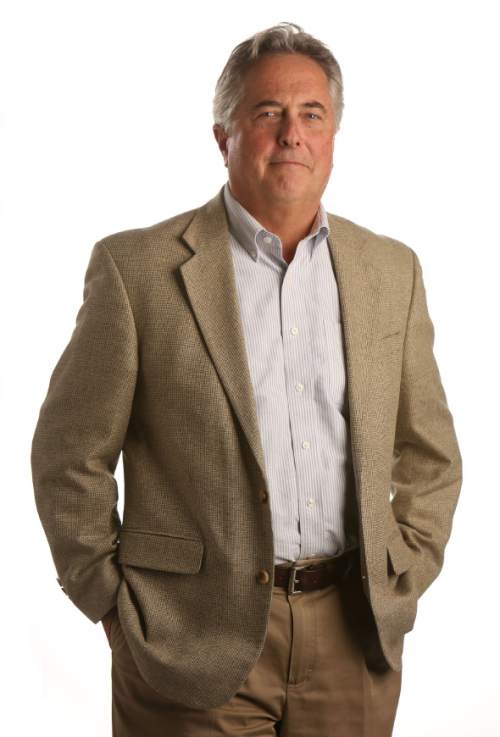This is an archived article that was published on sltrib.com in 2015, and information in the article may be outdated. It is provided only for personal research purposes and may not be reprinted.
Our role at The Salt Lake Tribune is to report, inform and get people talking. Talking not just to us, but also to one another.
We do it in many ways every day online. And we do it the old-fashioned way, by gathering a couple of hundred people to hear from newsmakers, ask questions and have a conversation.
On Feb. 19 at 7 p.m., we will do it again at the Salt Lake City Main Library. The topic is among the most emotional and debated of the moment: use of deadly force by law enforcement.
The turn of the new year in Utah brought a disturbing set of facts: 14 deaths from police shootings in 2014. The last homicide of the year involved a Stansbury Park man shot by a Tooele County sheriff's deputy after allegedly pointing a gun at the officer.
Amazingly, and depressingly, the next three homicides in Utah — the first of 2015 — involved men killed in confrontations with police, one on the porch of a home in Salt Lake City's Avenues neighborhood after an officer was injured by a man swinging a snow shovel. The other shootings included a man allegedly brandishing a knife in Draper and a Syracuse man who allegedly opened fire on officers.
It is human nature to jump to conclusions in clashes like these. The extremes run from "cops are untrained and out of control" to "citizens get what they deserve when they don't follow the commands of law enforcement."
In reality, every encounter has its own specifics. Being a police officer never has been more dangerous than it is now, with a proliferation of firearms and drugs, and a society that struggles with treating the mentally ill. At the same time, deadly force should be the absolute last resort.
While generalizing is dangerous, it makes sense to strive to identify principles and policies that address this grim trend.
That's the idea behind our Feb. 19 town hall. Joining The Tribune's Jennifer Napier-Pearce will be West Valley City Police Chief Lee Russo, state Sen. Howard Stephenson, community activist Lex Scott and Tribune reporter Erin Alberty.
Russo took the helm of West Valley City's department during a difficult time as the shooting of Danielle Willard was investigated at length and the narcotics unit was disbanded in the wake of revelations that detectives were mishandling evidence.
Stephenson is among legislators calling for a task force to review policies and procedures of Utah's law enforcement agencies, including the use of body cameras.
Scott is the co-founder of the United Front Party, a civil-rights group established "to stop the oppression of black people in America." She traveled to Ferguson, Mo., in the aftermath of the death of Mike Brown and writes of the experience at http://www.unitedfrontparty.com.
Alberty covers crime and built a one-of-a-kind database of fatal shootings by Utah law enforcement going back to 2005. The information, available at sltrib.com, includes narratives of each incident. It was compiled from court records and interviews with police, prosecutors and families of the deceased.
It is an invaluable record and demonstrates why such information should be collected in jurisdictions throughout the country.
We are calling our town hall meeting, which is open and free to the public, "Deadly Force: A Community Response to Police Shootings." It promises to be a valuable addition to an important conversation. Consider yourself invited.
Terry Orme is The Tribune's editor and publisher. Contact him at orme@sltrib.com.



